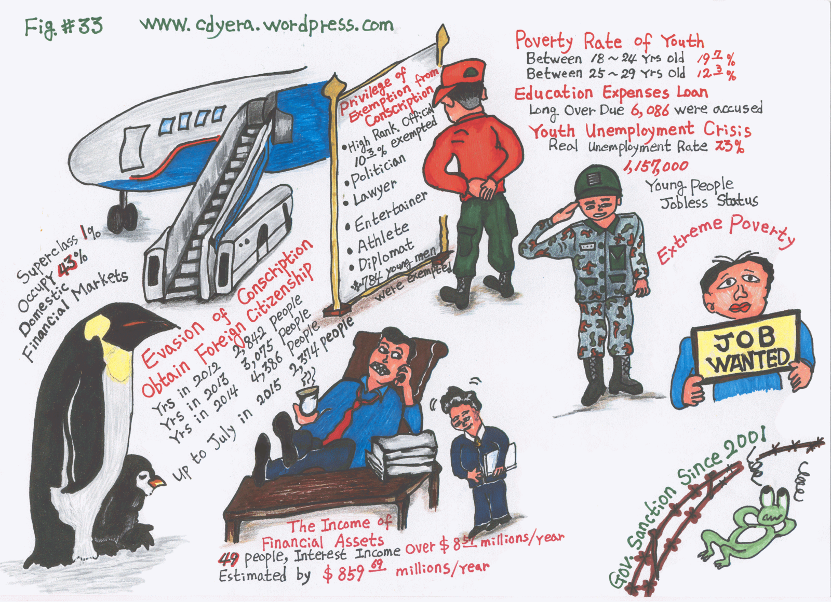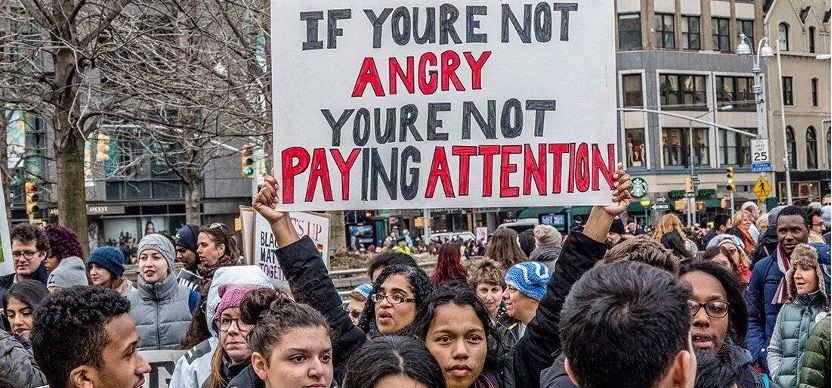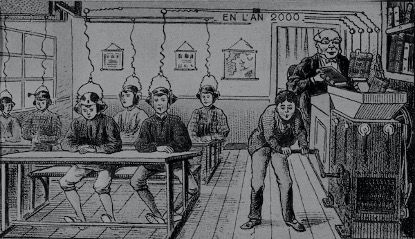Society | Privilege Incident: Together with pride, ignorance and indifference

Text | Ling Yuan
Recently, a Weibo has caused heated discussions on the Internet. Although the blogger's talk about education and privileges is pointless, his remarks are typical, especially the "elite arrogance." At present, online discussions mainly focus on "dual nationality", "direct promotion to Tsinghua University", "bloggers' moral character", etc., and there are few detailed discussions on Weibo content. So, I wanted to comment on the incident, talking about the fallacy in the blogger's discourse and its potential impact.


Structural inequalities overlooked
The fact that bloggers obviously ignore, or know that they think it is trivial, is that the phenomenon of uneven distribution of educational resources is not only real, but also has a profound impact on students: the general higher enrollment rate in cities is higher than that in rural areas; key schools continue to receive preferential investment ; Candidates from different provinces face different competitive pressures in 985 and 211 colleges and universities... Facts such as these are all manifestations of uneven distribution of educational resources. Acknowledging this premise, consider what the bloggers say, and there is clearly a problem.
The blogger praised the attitude of friends who only focus on studying hard without complaining about social injustice, and said that the way netizens view themselves is wrong. These emphasize structural inequality and criticize the privilege enjoyed by bloggers and their friends. Netizens even made him "disgusting". The blogger further "proudly" pointed out that it is not structural inequality, but it is netizens' perception of unfairness and their understanding of their own situation that hinders them from improving their self-worth.
This set of rhetoric that advocates the public to believe in and respect themselves, ignore injustice in education, and rely on personal efforts to achieve success is not uncommon in reality. However, there are hidden traps under its inspirational appearance. Avoiding the objective fact of unequal distribution of educational resources, not mentioning the importance of the environment, and assigning the factors and responsibility for determining the situation to individuals is acquiescing to this social injustice, shifting the responsibility inappropriately to individuals and families, and reducing the burden of taxation. The responsibilities of the supporting state and social institutions.
This kind of thinking ignores that the victims not only bear the fate of injustice in education, but also already bear the price of self-selection. Without the backing of cultural and economic resources, all misfortunes and mistakes will literally collide with their fate.
What's more sinister is that this kind of statement also deprives the victims of their right to speak, obliterates their own efforts, and makes people blame themselves for not working hard enough in a bad situation, bear unnecessary psychological and moral burdens, and at the same time despise environmental influences. It is difficult to think about the possibility and necessity of improving the environment so that man becomes a docile, convenient tool.
Emotions as "Positive Energy"
The blogger said that the influence of privilege on people is to make people learn to be kind, to look at things softly and not to regard people as competitors, while those who do not have access to good resources and clamor for unfair education are indifferent and mean inside, full of jealousy. She believes that she is gentle and kind, not jealous or interfering with others. Compared with netizens, she is more superior in morals, ideas and emotions. Aside from whether her self-perception is appropriate, the emotional part of this passage is worth talking about.
Emotions often accompany external events, weakening or ignoring the impact of events, and it is unreasonable to judge emotions in isolation. Emotions cannot be simply differentiated between good and bad, nor can they determine the quality of a person's character. Suffering when faced with injustice and harm; jealous when discovering that others have resources that they do not possess due to the unfairness of the social structure; anger when others show off their advantages and express contempt and disgust... these are all is a normal emotional response.

As long as there is inequity, people will have negative emotions when it comes to education. Some people claim that eliminating negative emotions can allow people to focus on improving the status quo and obtaining a better life (this is also the logic of many public opinion calling critical discourse "negative energy" and lashing out). However, limited resources, combined with an uneven distribution, almost ensure the defeat of some people, and it is impossible for everyone to benefit equally in any case. Even if everyone is optimistic and actively studying hard, there will be someone who will lose the competition.
Therefore, personal suppression of negative emotions can neither guarantee development prospects nor solve practical problems. In contrast, emotions such as sadness, anger, jealousy, etc., which are generally considered bad or even incorrect, can have utility in reality, and they can motivate individuals to think and act. From the perspective of rights, interests and rationality, negative emotions should be squared up rather than eliminated. When people experience negative emotions, they will naturally review the source of emotions, analyze existing problems, and think about solutions. In this process, people can recognize the oppression imposed by the outside world, understand the relationship between themselves and the outside world, and have the will to resist and get rid of the oppression. Even if the environment cannot be changed for the time being, once a sense of resistance arises, people can actively seek information and resources related to the problem, continue to deepen their understanding of the problem, consider effective intervention methods, and may eventually take action to affect reality.
Emotions can lead people to the path of resistance, which is why vested interests smear emotions. Protesters often stand on their opposites and undermine their true vision of a stable society composed of submissive civilians. The so-called mainstream groups, clothed with warm and positive energy, strongly criticize negative emotions, accuse those with emotions, force them to stop expressing their emotions, and make their emotions a stigma, which is suppressing the budding consciousness of resistance. Forbidding people to feel and express their emotions, blocking the pathway from emotion to thinking and action, is cultural hegemony exercised by vested interests and their supporters.
What is education for?
Bloggers believe that the education they receive makes them look at things softly, and those who fail to get a good education will always only cry out about social injustice.
If the so-called education with privileges can make people ignore the injustices in society, deny the reality of the suffering of other groups, and refuse to understand things beyond the scope of cognition, then it is by no means good education - it is not education for cultivating people , but the education of slaves and labor machines. Education should provide people with a wealth of knowledge, information and ideological resources, and the nourishment that people can obtain not only comes from the environment but the whole world, so as to get rid of the cognitive and thinking limitations caused by the environment to a certain extent. After people understand the real and complex world, and then think about their expectations for the society, the path they are willing to choose, the state of thinking and the effect of their choices will be different from those in the ignorant period. Education is not the only way for people to acquire knowledge and inspiration, but education should be a very efficient and important way.

Perhaps in the eyes of the privileged they are completely autonomous and free. They only need to accept and uphold the existing order, and play the role of their natural superiors, so that they can "live freely" and obtain the greatest benefit. But from a broader perspective, they are slaves to the environment, and they cannot get rid of their own situation and social status to think about problems and choose ideas. The education they received only made them conform to their own environment, not to seek liberation and freedom from the existing social order, and to conduct independent self-reflection and criticism.
Although these people despise and loathe their critics, as if they were forever cut off from so-called base emotions, they are probably not as innocent as they claim to be. On the one hand, they may be immersed in the cognition of their own superiority over others for a long time. When they encounter concepts they disagree with, they cannot abandon their sense of superiority to think about rationality, and they will only reject them and judge them to be wrong or inferior. On the other hand, they rely on their existing status and advantages. Helping other groups requires giving up some of their interests. If they are unwilling to give up, their options will be limited, so they may not be able to accept that others are more courageous and free. From this perspective, they are consciously or unintentionally defending their status, maintaining the existing system of exploitation and social inequality.
Whether it is ignorance, arrogance, jealousy, or selfishness, it is probably not an evaluation they are willing to accept, and admitting it means that they are not inherently superior to those they despise. It is human nature to cover up one's own flaws, but their attack on those who express dissent and plundering the moral high ground should be fought back.
Finally, it needs to be explained that the vested interests, represented by bloggers, who use this set of words, while rationalizing the unfair system, also require the victims not only to accept, but also identify and obey the system. On the surface, they stigmatize their victims simply because they think they are not hardworking and good enough to express their opinions publicly and discuss public issues. However, their hatred also lies in the fact that the victims dare not think of standing out in the unfair structure, and question the structure itself, in an attempt to erase their advantages and privileges, it is really absurd.
This is true arrogance under the guise of hypocrisy and conceit.
Like my work? Don't forget to support and clap, let me know that you are with me on the road of creation. Keep this enthusiasm together!

- Author
- More